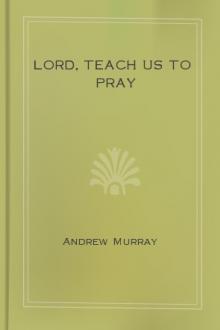St. George and St. Michael - George MacDonald (beach books .txt) 📗

- Author: George MacDonald
Book online «St. George and St. Michael - George MacDonald (beach books .txt) 📗». Author George MacDonald
as many more from both sides and ends, and at the self- same time shall fasten it to a place beyond a man's natural strength to take it away. But the best thing is the escutcheon; for the owner of it, though a woman, may with her own delicate hand vary the ways of coming to open the lock ten millions of times, beyond the knowledge of the smith that made it, or of me who invented it. If a stranger open it, it setteth an alarm agoing, which the stranger cannot stop from running out; and besides, though none should .be within hearing, yet it catcheth his hand, as a trap doth a fox; and though far from maiming him, yet it leaveth such a mark behind it, as will discover him if suspected; the escutcheon or lock plainly showing what moneys he hath taken out of the box to a farthing, and how many times opened since the owner hath been at it.'
He then showed her how to set it, left the chest open, and gave her the key off his bunch that she might use it more easily. Ere she returned it, she had made herself mistress of the escutcheon as far as the mere working of it was concerned, as she proved to the satisfaction of the inventor.
Her docility and quickness greatly pleased him. He opened a cabinet, and after a search in its drawers, took from it a little thing, in form and colour like a plum, which he gave her, telling her to eat it. She saw from his smile that there was something at the back of the playful request, and for a moment hesitated, but reading in his countenance that he wished her at least to make the attempt, she put it in her mouth.
She was gagged. She could neither open nor shut her mouth a hair's breadth, could neither laugh, cry out, nor make any noise beyond an ugly one she would not make twice. The tears came into her eyes, for her position was ludicrous, and she imagined that his lordship was making game of her. A girl less serious or more merry would have been moved only to laughter.
But lord Herbert hastened to relieve her. On the application of a tiny key, fixed with a joint in a finger-ring, the little steel bolts it had thrown out in every direction returned within the plum, and he drew it from her mouth.
'You little fool!' he said, with indescribable sweetness, for he saw the tears in her eyes; 'did you think I would hurt you? '
'No, my lord; but I did fear you were going to make game of me. I could not have borne Caspar to see me so.'
'Alas, my poor child!' he rejoined, 'you have come to the wrong house if you cannot put up with a little chafing. There!' he added, putting the plum in her hand, 'it is an untoothsome thing, but the moment may come when you will find it useful enough to repay you for the annoyance of a smile that had in it ten times more friendship than merriment.'
'I ask your pardon, my lord,' said Dorothy, by this time blushing deep with shame of her mistrust and over-sensitiveness, and on the point of crying downright. But his lordship smiled so kindly that she took heart and smiled again.
He then showed her how to raise the key hid in the ring, and how to unlock the plum.
'Do not try it on yourself,' he said, as he put the ring on her finger; 'you might find that awkward.'
'Be sure I shall avoid it, my lord,' returned Dorothy.
'And do not let any one know you have such a thing,' he said, 'or that there is a key in your ring.'
'I will try not, my lord.'
The breakfast bell rang.
'If you will come again after supper,' he said, as he pulled off his linen frock, 'I will show you my fire-engine at work, and tell you all that is needful to the understanding thereof;-only you must not publish it to the world,' he added, 'for I mean to make much gain by my invention.'
Dorothy promised, and they parted-lord Herbert for the marquis's parlour, Dorothy for the housekeeper's room, and Caspar for the third table in the great hall.
After breakfast Dorothy practised with her plum until she could manage it with as much readiness as ease. She found that it was made of steel, and that the bolts it threw out upon the slightest pressure were so rounded and polished that they could not hurt, while nothing but the key would reduce them again within their former sheath.
END OF VOLUME I.
START OF VOLUME II
CHAPTER XVII.
THE FIRE-ENGINE.
As soon as supper was over in the housekeeper's room, Dorothy sped to the keep, where she found Caspar at work.
'My lord is not yet from supper, mistress,' he said. 'Will it please you wait while he comes?'
Had it been till midnight, so long as there was a chance of his appearing, Dorothy would have waited. Caspar did his best to amuse her, and succeeded,-showing her one curious thing after another,-amongst the rest a watch that seemed to want no winding after being once set agoing, but was in fact wound up a little by every opening of the case to see the dial. All the while the fire-engine was at work on its mysterious task, with but now and then a moment's attention from Caspar, a billet of wood or a shovelful of sea-coal on the fire, a pull at a cord, or a hint from the hooked rod. The time went rapidly.
Twilight was over, Caspar had lighted his lamp, and the moon had risen, before lord Herbert came.
'I am glad to find you have patience as well as punctuality in the catalogue of your virtues, mistress Dorothy,' he said as he entered. 'I too am punctual, and am therefore sorry to have failed now, but it is not my fault: I had to attend my father. For his sake pardon me.'
'It were but a small matter, my lord, even had it been uncompelled, to keep an idle girl waiting.'
'I think not so,' returned lord Herbert. 'But come now, I will explain to you my wonderful fire-engine.'
As he spoke, he took her by the hand, and led her towards it. The creature blazed, groaned, and puffed, but there was no motion to be seen about it save that of the flames through the cracks in the door of the furnace, neither was there any clanking noise of metal. A great rushing sound somewhere in the distance, that seemed to belong to it, yet appeared too far off to have any connection with it.
'It is a noisy thing,' he said, as they stood before it, 'but when I make another, it shall do its work that thou wouldst not hear it outside the door. Now listen to me for a moment, cousin. Should it come to a siege and I not at Raglan-the wise man will always provide for the worst-Caspar will be wanted everywhere. Now this engine is essential to the health and comfort, if not to the absolute life of the castle, and there is no one at present capable of managing it save us two. A very little instruction, however, would enable any one to do so: will you undertake it, cousin, in case of need?'
'Make me assured that I can, and I will, my lord,' answered Dorothy.
'A good and sufficing answer,' returned his lordship, with a smile of satisfaction. 'First then,' he went on, 'I will show you wherein lies its necessity to the good of the castle. Come with me, cousin Dorothy.'
He led the way from the room, and began to ascend the stair which rose just outside it. Dorothy followed, winding up through the thickness of the wall. And now she could not hear the engine. As she went up, however, certain sounds of it came again, and grew louder till they seemed close to her ears, then gradually died away and once more ceased. But ever, as they ascended, the rushing sound which had seemed connected with it, although so distant, drew nearer and nearer, until, having surmounted three of the five lofty stories of the building, they could scarcely hear each other speak for the roar of water, falling in intermittent jets. At last they came out on the top of the wall, with nothing between them and the moat below but the battlemented parapet, and behold! the mighty tower was roofed with water: a little tarn filled all the space within the surrounding walk. It undulated in the moonlight like a subsiding storm, and beat the encircling banks. For into its depths shot rather than poured a great volume of water from a huge orifice in the wall, and the roar and the rush were tremendous. It was like the birth of a river, bounding at once from its mountain rock, and the sound of its fall indicated the great depth of the water into which it plunged. Solid indeed must be the walls that sustained the outpush of such a weight of water!
'You see now, cousin, what yon fire-souled slave below is labouring at,' said his lordship. 'His task is to fill this cistern, and that he can in a few hours; and yet, such a slave is he, a child who understands his fetters and the joints of his bones can guide him at will.'
'But, my lord,' questioned Dorothy, 'is there not water here to supply the castle for months? And there is the draw-well in the pitched court besides.'
'Enough, I grant you,' he replied, 'for the mere necessities of life. But what would come of its pleasures? Would not the beleaguered ladies miss the bounty of the marble horse? Whence comes the water he gives so freely that he needeth not to drink himself? He would thirst indeed but for my water-commanding fiend below. Or how would the birds fare, were the fountains on the islands dry in the hot summer? And what would the children say if he ceased to spout? And how would my lord's tables fare, with the armed men besetting every gate, the fish-ponds dry, and the fish rotting in the sun? See you, mistress Dorothy? And for the draw-well, know you not wherein lies the good of a tower stronger than all the rest? Is it not built for final retreat, the rest of the castle being at length in the hands of the enemy? Where then is your draw-well?'
'But this tower, large as it is, could not receive those now within the walls of the castle,' said Dorothy.
'They will be fewer ere its shelter is needful.'
It was his tone quite as much as the words that drove a sudden sickness to the heart of the girl: for one moment she knew what siege and battle meant. But she recovered herself with a strong effort, and escaped from the thought by another question.
'And whence comes all this water, my lord?' she said, for she was one who would ask until she knew all that concerned her.
'Have you not chanced to observe a well in my workshop below, on the left-hand side of the door, not far from the great chest?'
'I have observed it, my lord.'
'That is a very deep well, with a powerful spring. Large pipes lead from all but the very bottom of that to my fire-engine. The
He then showed her how to set it, left the chest open, and gave her the key off his bunch that she might use it more easily. Ere she returned it, she had made herself mistress of the escutcheon as far as the mere working of it was concerned, as she proved to the satisfaction of the inventor.
Her docility and quickness greatly pleased him. He opened a cabinet, and after a search in its drawers, took from it a little thing, in form and colour like a plum, which he gave her, telling her to eat it. She saw from his smile that there was something at the back of the playful request, and for a moment hesitated, but reading in his countenance that he wished her at least to make the attempt, she put it in her mouth.
She was gagged. She could neither open nor shut her mouth a hair's breadth, could neither laugh, cry out, nor make any noise beyond an ugly one she would not make twice. The tears came into her eyes, for her position was ludicrous, and she imagined that his lordship was making game of her. A girl less serious or more merry would have been moved only to laughter.
But lord Herbert hastened to relieve her. On the application of a tiny key, fixed with a joint in a finger-ring, the little steel bolts it had thrown out in every direction returned within the plum, and he drew it from her mouth.
'You little fool!' he said, with indescribable sweetness, for he saw the tears in her eyes; 'did you think I would hurt you? '
'No, my lord; but I did fear you were going to make game of me. I could not have borne Caspar to see me so.'
'Alas, my poor child!' he rejoined, 'you have come to the wrong house if you cannot put up with a little chafing. There!' he added, putting the plum in her hand, 'it is an untoothsome thing, but the moment may come when you will find it useful enough to repay you for the annoyance of a smile that had in it ten times more friendship than merriment.'
'I ask your pardon, my lord,' said Dorothy, by this time blushing deep with shame of her mistrust and over-sensitiveness, and on the point of crying downright. But his lordship smiled so kindly that she took heart and smiled again.
He then showed her how to raise the key hid in the ring, and how to unlock the plum.
'Do not try it on yourself,' he said, as he put the ring on her finger; 'you might find that awkward.'
'Be sure I shall avoid it, my lord,' returned Dorothy.
'And do not let any one know you have such a thing,' he said, 'or that there is a key in your ring.'
'I will try not, my lord.'
The breakfast bell rang.
'If you will come again after supper,' he said, as he pulled off his linen frock, 'I will show you my fire-engine at work, and tell you all that is needful to the understanding thereof;-only you must not publish it to the world,' he added, 'for I mean to make much gain by my invention.'
Dorothy promised, and they parted-lord Herbert for the marquis's parlour, Dorothy for the housekeeper's room, and Caspar for the third table in the great hall.
After breakfast Dorothy practised with her plum until she could manage it with as much readiness as ease. She found that it was made of steel, and that the bolts it threw out upon the slightest pressure were so rounded and polished that they could not hurt, while nothing but the key would reduce them again within their former sheath.
END OF VOLUME I.
START OF VOLUME II
CHAPTER XVII.
THE FIRE-ENGINE.
As soon as supper was over in the housekeeper's room, Dorothy sped to the keep, where she found Caspar at work.
'My lord is not yet from supper, mistress,' he said. 'Will it please you wait while he comes?'
Had it been till midnight, so long as there was a chance of his appearing, Dorothy would have waited. Caspar did his best to amuse her, and succeeded,-showing her one curious thing after another,-amongst the rest a watch that seemed to want no winding after being once set agoing, but was in fact wound up a little by every opening of the case to see the dial. All the while the fire-engine was at work on its mysterious task, with but now and then a moment's attention from Caspar, a billet of wood or a shovelful of sea-coal on the fire, a pull at a cord, or a hint from the hooked rod. The time went rapidly.
Twilight was over, Caspar had lighted his lamp, and the moon had risen, before lord Herbert came.
'I am glad to find you have patience as well as punctuality in the catalogue of your virtues, mistress Dorothy,' he said as he entered. 'I too am punctual, and am therefore sorry to have failed now, but it is not my fault: I had to attend my father. For his sake pardon me.'
'It were but a small matter, my lord, even had it been uncompelled, to keep an idle girl waiting.'
'I think not so,' returned lord Herbert. 'But come now, I will explain to you my wonderful fire-engine.'
As he spoke, he took her by the hand, and led her towards it. The creature blazed, groaned, and puffed, but there was no motion to be seen about it save that of the flames through the cracks in the door of the furnace, neither was there any clanking noise of metal. A great rushing sound somewhere in the distance, that seemed to belong to it, yet appeared too far off to have any connection with it.
'It is a noisy thing,' he said, as they stood before it, 'but when I make another, it shall do its work that thou wouldst not hear it outside the door. Now listen to me for a moment, cousin. Should it come to a siege and I not at Raglan-the wise man will always provide for the worst-Caspar will be wanted everywhere. Now this engine is essential to the health and comfort, if not to the absolute life of the castle, and there is no one at present capable of managing it save us two. A very little instruction, however, would enable any one to do so: will you undertake it, cousin, in case of need?'
'Make me assured that I can, and I will, my lord,' answered Dorothy.
'A good and sufficing answer,' returned his lordship, with a smile of satisfaction. 'First then,' he went on, 'I will show you wherein lies its necessity to the good of the castle. Come with me, cousin Dorothy.'
He led the way from the room, and began to ascend the stair which rose just outside it. Dorothy followed, winding up through the thickness of the wall. And now she could not hear the engine. As she went up, however, certain sounds of it came again, and grew louder till they seemed close to her ears, then gradually died away and once more ceased. But ever, as they ascended, the rushing sound which had seemed connected with it, although so distant, drew nearer and nearer, until, having surmounted three of the five lofty stories of the building, they could scarcely hear each other speak for the roar of water, falling in intermittent jets. At last they came out on the top of the wall, with nothing between them and the moat below but the battlemented parapet, and behold! the mighty tower was roofed with water: a little tarn filled all the space within the surrounding walk. It undulated in the moonlight like a subsiding storm, and beat the encircling banks. For into its depths shot rather than poured a great volume of water from a huge orifice in the wall, and the roar and the rush were tremendous. It was like the birth of a river, bounding at once from its mountain rock, and the sound of its fall indicated the great depth of the water into which it plunged. Solid indeed must be the walls that sustained the outpush of such a weight of water!
'You see now, cousin, what yon fire-souled slave below is labouring at,' said his lordship. 'His task is to fill this cistern, and that he can in a few hours; and yet, such a slave is he, a child who understands his fetters and the joints of his bones can guide him at will.'
'But, my lord,' questioned Dorothy, 'is there not water here to supply the castle for months? And there is the draw-well in the pitched court besides.'
'Enough, I grant you,' he replied, 'for the mere necessities of life. But what would come of its pleasures? Would not the beleaguered ladies miss the bounty of the marble horse? Whence comes the water he gives so freely that he needeth not to drink himself? He would thirst indeed but for my water-commanding fiend below. Or how would the birds fare, were the fountains on the islands dry in the hot summer? And what would the children say if he ceased to spout? And how would my lord's tables fare, with the armed men besetting every gate, the fish-ponds dry, and the fish rotting in the sun? See you, mistress Dorothy? And for the draw-well, know you not wherein lies the good of a tower stronger than all the rest? Is it not built for final retreat, the rest of the castle being at length in the hands of the enemy? Where then is your draw-well?'
'But this tower, large as it is, could not receive those now within the walls of the castle,' said Dorothy.
'They will be fewer ere its shelter is needful.'
It was his tone quite as much as the words that drove a sudden sickness to the heart of the girl: for one moment she knew what siege and battle meant. But she recovered herself with a strong effort, and escaped from the thought by another question.
'And whence comes all this water, my lord?' she said, for she was one who would ask until she knew all that concerned her.
'Have you not chanced to observe a well in my workshop below, on the left-hand side of the door, not far from the great chest?'
'I have observed it, my lord.'
'That is a very deep well, with a powerful spring. Large pipes lead from all but the very bottom of that to my fire-engine. The
Free e-book «St. George and St. Michael - George MacDonald (beach books .txt) 📗» - read online now
Similar e-books:





Comments (0)